News feature, November 5, 2008
The last half: A review of the ProTour teams' seasons
What was the last half of the 2008 season like for the 18 ProTour teams, and how did the whole year turn out? As the Cyclingnews staff asked, "What went right and what went wrong?"
Here is part two of a team-by-team analysis, with the teams listed in no particular order
Team Columbia
By Susan Westemeyer
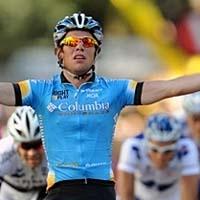
|
What went right: The second half of the season was pretty much like the first half: nearly perfect. Young sprinter Mark Cavendish continued to dominate, winning four stages in the Tour de France on his way to taking the most victories of any professional on the season, for a total of 17. Marcus Burghardt claimed another Tour stage win for the team, and Kim Kirchen wore the yellow jersey for four days. The team ended up the season with 76 victories, far more than any other team, with those coming from 17 different riders.
In addition to Cavendish, who had 10 wins in the second half of the year, fellow sprinter André Greipel scored eight victories. He spread them out from January to October. Young Norwegian Edvald Boasson Hagen had five wins in the later part of the season, as did Bert Grabsch. One of Grabsch's most prestigious wins was the World Championships time trial. The comeback rider in the second half was Linus Gerdemann, who successfully recovered from his serious injuries from a Tirreno-Adriatico crash to take five wins, including the overall title in the Deutschland Tour.
What went wrong: Michael Rogers resumed riding after his bout with Epstein Barr virus, but although he brought in top ten finishes in both Olympic events and finished second overall (behind Grabsch) in the Sachsen Rundfahrt, he still has a way to go to reclaim his role of team captain. Kanstantsin Siutsou also was a non-factor in the second half of the season, although he finished a surprisingly high 17th in the Tour de France.
Holding out for: The team still needs help in the mountains, especially since Gerdemann has left the team. A healthy Burghardt should have a word to say in the Spring Classics, where the team was a little weak this year. Gerdemann's move to Milram also brings the overall contender question down to Kirchen and Rogers, both of whom will have to fight for that honour. In fact, this could be the team's weakest point. The team hasn't made many new signings – or at least hasn't announced many – so it looks as if they are following the theory of "If it isn't broken, don't fix it."
Overall: The team's trust in its young riders proved worthwhile, with Cavendish and Greipel ranking first and third in the number of season wins. On the whole, the young US-based team can be more than satisfied with its first year.
Liquigas
By Gregor Brown
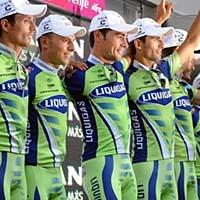
|
What went right: Team Liquigas took eight wins in the second half of 2008. Though Roberto Amadio's boys did not win as much as they did in the first half, they did capture such prestigious wins as the Giro del Piemonte and the Vuelta a España team time trial.
The team also backed young talent Roman Kreuziger in his fight for the Tour de France's maillot blanc of best young rider. He finished a close second to Andy Schleck.
What went wrong: Daniele Bennati bagged four wins and the Giro d'Italia points jersey in the spring, but a knee problem forced him out of the Tour de France. The team's other big name, Filippo Pozzato, held the leader's jersey in the Vuelta a España, but failed to deliver a win in his last six months with Liquigas.
Team Liquigas had an unwelcome first in the Tour de France, as its overall contender, Manuel Beltrán, was the race's first doping case. He was kicked out of the race and off the team.
Holding out for: The team is holding out for a break-through in stage racing. The team, though losing Pozzato, brought on Ivan Basso. He will add to already strong classification contenders – Kreuziger, Vincenzo Nibali and Franco Pellizotti.
Overall: Liquigas should be proud of its status as Italy's best team and one of cycling's top players. It will continue that way in 2009.
Silence – Lotto
By Brecht Decaluwé
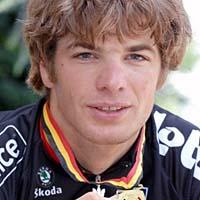
|
What went right: Cadel Evans finished second in the Tour de France and a podium result in the Tour de France should always be considered tremendous. Robbie McEwen delivered the wins in the one-day classics. The Australian won Paris-Brussels for the fifth time - in foul weather and not in a bunch sprint this time - and he also claimed the win in the Vattenfall Cyclassics in Hamburg. Youngsters Jürgen Roelandts and Greg Van Avermaet showed that they are likely to become the Belgian team's next stars in the classics. Roelandts became Belgian champion while Van Avermaet won a stage and the overall points classification in the Vuelta a España. Jurgen Van Den Broeck was impressive uphill in the Giro d'Italia. The best thing the team did in 2008? Probably the signing of Philippe Gilbert.
What went wrong: Cadel Evans finished second in the Tour de France. In a year without Alberto Contador, Ivan Basso, Michael Rasmussen, Levi Leipheimer and Andreas Klöden it could've been the last chance for Evans to get the win in France. Yaroslav Popovych disappointed as lieutenant and the Australian crashed in the first week of the Tour. That combination surely didn't help Evans in battling for the win. Besides, there were the images from Evans' bodyguard and the reactions from Evans himself towards people who came too close to the Australian. Evans fancied Olympic medals in Beijing but he fell short in both the road race and the time trial (fifth).
Robbie McEwen decided to leave the Silence-Lotto team and he will be defending the Russian colours from Katyusha next year; the Australian rode for the Belgian team since 2002 and claimed three green jerseys at the Tour de France together with this team.
Classics specialist Leif Hoste was allowed to focus on one week in April, but the Belgian disappointed. After a good Tour de France – where Hoste was a domestique for Evans – he disappointed again in the time trial at the world championships. With the signing of Bernhard Kohl the Belgian team managed to attract negative media attention as it turned out that the Austrian climber who finished third in the Tour de France had been eating from the forbidden fruit, this time in the form of a CERA apple.
Holding out for: By signing Gilbert, 2009 could become a great year for Silence-Lotto, or however they will be called in 2009. Gilbert's versatility could provide the advantage the team has been lacking in almost every race in the past. Gilbert and Hoste, supported by Van Avermaet and Roelandts, should be offering more opposition in the Spring Classics against Quick Step and the former CSC team in 2009. Newly signed Thomas Dekker remains a question mark, but if he performs like he did two years ago, he should be the lieutenant in the mountains that Evans has been lacking in previous years.
Overall: It has been a good year for Silence-Lotto, but mainly thanks to their Australian riders McEwen and Evans. The team is no longer known for just being a team for the classics. Young Belgians like Van Den Broeck, Roelandts and Van Avermaet stood up and have a bright future ahead. Wins have been lacking for the Belgian team, maybe next year?
Team Rabobank
By Susan Westemeyer
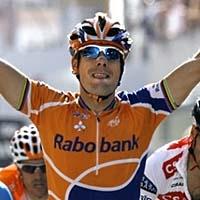
|
What went right: The second half of the season wasn't the best for the Dutch team. It had only four victories, with Oscar Freire taking two of them, the 14th stage of the Tour de France and the 11th stage of the Vuelta a España. German Grischa Niermann won the time trial at the Rothaus Regio-Tour for his first win in seven years. And a special highlight was Kai Reus' return to the peloton in the Tour of Missouri, well over a year after suffering serious head injuries in a training accident.
Denis Menchov finished fourth in the Tour, and will probably eventually move up to a podium place, while Freire finally won the green jersey in the Tour. Youngster Robert Gesink gave the team hope for the future by finishing seventh overall in the Vuelta a España, and had five top ten finishes, including a sixth place on the L'Angliru.
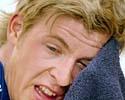
|
What went wrong: 16 season wins aren't very many and it placed the Dutch team in the lower third of the rankings – which must have been embarrassing in light of the fact that the Rabobank Continental team had 38 wins. The team also had one controversy this season when it released Thomas Dekker under unexplained circumstances, saying only that the team and rider were unable to reconcile their "differences of opinion."
And sprinter Graeme Brown was not a factor in the few races he rode in the last half of the season.
Holding out for: More wins! Perhaps the team simply needs to wait until some of the youngsters mature a bit more. The team needs another sprinter besides Freire.
Overall: Gesink showed promise of becoming the new team leader when Menchov leaves or retires, so if the team can wait it out, they ought to do well with him in the future. Freire showed that he can still do it when he needs to, spreading his seven wins out over the season. Still, it can't have been an entirely satisfactory season for the Dutch team.
Quick Step
By Brecht Decaluwé
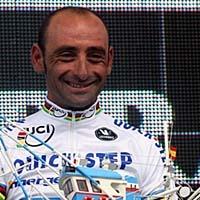
|
What went right: Quick Step won the two races they most wanted, the Ronde van Vlaanderen and Paris-Roubaix. Boonen wasn't allowed to start in the Tour de France after the cocaine debacle but Gert Steegmans made up for a poor Tour from Quick Step by winning the last stage in a bunch sprint on the Champs Élysées. Boonen was able to overcome the cocaine media attention by showing good performances on the bike, totalling 15 victories in 2008, just two less than Mark Cavendish. Boonen was allowed to start in the Vuelta a España and he didn't disappoint with two stage victories in Spain. The Belgian team won five stages in total, with Bettini racking up two more wins and young Wouter Weylandt grabbing his first win in a Grand Tour in Valladolid.
What went wrong: Stijn Devolder couldn't live up to the expectations in the Tour de France. The GC-rider cracked in the mountains and retired in his first Tour. After good performances from the team leaders in the Vuelta a España a lot was expected from Bettini and Boonen at the world championships. Boonen talked about having great legs at the world championships but together with defending champion Bettini he was caught up in team tactics when the successful break with Ballan got away.
After failing to come to an agreement about his contract at Quick Step Bettini decided to retire right after the world championships. Surely Bettini wasn't expecting to end his career this way as the the Olympic Games in Beijing had been a disappointment as well. Things got even worse for Quick Step as fresh signing Stefan Schumacher – who could be signed with the money not being spend on Bettini – was caught using CERA at the Tour de France. Meanwhile, the talented Giovanni Visconti decided to move to the new ISD-Danieli Team at a moment when he started to deliver the results for Quick Step. Additionally, directeur sportif Dirk Demol chose to go back to Johan Bruyneel, leaving his pupil Devolder behind.
Holding out for: Next year will be the first one without Paolo Bettini so for the team will have to look for new solutions in races like Liège-Bastogne-Liège and the Amstel Gold Race, whereas the races on the cobbles should remain secured with Tom Boonen and Stijn Devolder. Then again it seems like the latter will focus less on the Spring Classics in order to start fresh in the Tour de France. If Boonen doesn't have his best day then Wouter Weylandt is likely to become the new pure sprinter in the team, since Steegmans decided to try his luck in the new Katyusha team from Oleg Tinkoff. Australian sprinter Allan Davis joined the team halfway through the season and he could be an alternative in the sprint as well.
Overall: It has been a year of highlights on the sporting side with wins in the Ronde van Vlaanderen, Paris-Roubaix and a win on the Champs Élysées in the Tour de France. The cocaine story around Boonen and the signing of CERA-Schumacher have taken the attention away from the team's sporting news.
Team Gerolsteiner
By Susan Westemeyer
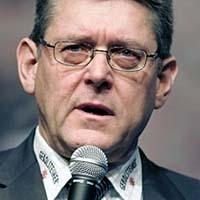
|
What went right: Not much. The team took two national championship jerseys (Fabian Wegmann, Germany) and Markus Zberg (Switzerland), and three stage wins from three different riders – Markus Fothen at the Rothaus Regio-Tour; Carlo Westphal at the Eneco Tour; and Robert Förster scored a stage in the Tour of Poland. Davide Rebellin had many top finishes in the second half of the season, including a silver medal in the Olympics road race, but the top step on the podium always managed to elude him in this second half of the season.
Stefan Schumacher dominated both time trials in the Tour de France and Bernhard Kohl blasted out of nowhere to win the polka-dot jersey and finish third overall, but those stories belong more in the next category, which is:
What went wrong: If anyone had a feeling watching Gerolsteiner do so well in the Tour that it was "too good to be true," then they were right. Both Schumacher and Kohl tested positive for CERA-EPO, and stand to be stripped of their accomplishments. That bad news was reported after Manager Hans-Michael Holczer announced that he was unable to find a new sponsor and was therefore folding the team.
Holding out for: Nothing. The team closed shop. A handful of riders signed on with rival German Team Milram and others have also found jobs, but not all. Holczer said he is leaving the sport with which he has so long been associated.
Overall: It was a dismal year for the team. Few riders did anything to recommend themselves for a new employer. Sprinter Förster led the team with a meager four wins on the season. The poor season was capped off by the devastating doping news, which put a sad end to a team which had deserved a better fate.

